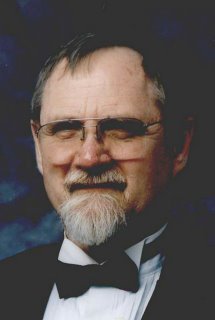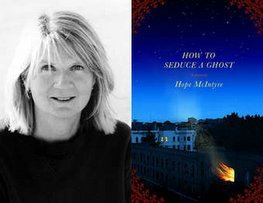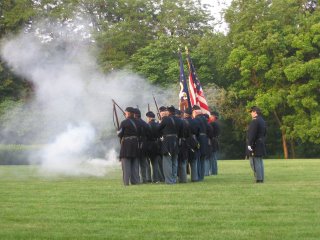 Jeff, I read the book As Dog is My Witness, and it was terrific!
Jeff, I read the book As Dog is My Witness, and it was terrific!Thank you!
I'm curious, because I've been introducing my sons to the joys of the Marx Brothers this summer, and you reference them a couple times in the book. Were they a big influence on you as a kid (or an adult)?I first "met" the Marx Bros. when I was in high school. Late one night, when my father was asleep (he was a store owner, and got up at some ungodly hour), I happened across "Horse Feathers" and was cackling madly five minutes into the movie. My mother walked in, took a look, shook her head and said, "your father likes them, too," and then walked away. My life had changed.
Really I think all modern humor stems from Groucho in some way. But I'm a bit biased.Yeah, but Harpo is sublime. The Marxes will be featured more prominently in my next book, actually.
Oh, I'll be looking forward to that! My sons love Harpo, too, especially when he gets out his scissors. What I love about your book is that it's very funny, but you also maintain tension--with family, extended family, a murder, and a looming literary deadline. Does this reflect your life at all?Well, luckily there's been no murder... yet. The books reflect a portion of my life, but it's all exaggerated. All of it. No, really.
One of my favorite lines in the book is "Being nice to my brother in law was like sucking in my gut to look more appealing; it had little effect, and it felt so good when I stopped." There's so much truth in that line, for men and women alike. And it reflects the fact that Aaron is not a traditional gumshoe, but a normal guy. How did you come up with the character of Aaron Tucker?Well, let's see. I'm a freelance writer who works out of his New Jersey home, is married to a lawyer and has two children, one of whom has Asperger Syndrome. Aaron, on the other hand, is a freelance writer who works out of his New Jersey home, is married to a lawyer and has two children, one of whom has Asperger Syndrome. So it was all clearly random.
Honestly, Aaron was created out of a need to have someone who really shouldn't be investigating murders thrust into that role. And I couldn't think of a less suitable candidate than myself.
Okay, I think I can vaguely see his origins there . . . while we're on the topic, the book does much to educate people about Asperger Syndrome, or A.S. Aaron maintains (as I believe you do) that people need to keep a sense of humor, and that A.S. isn't a terrible sentence, but a challenge--a sometimes difficult challenge. Do A.S. parents ever thank you for your positive stance on this?I have gotten a lot of really wonderful emails from Asperger parents, grandparents, uncles, aunts, friends and people with AS themselves. It's the most gratifying part of the job. Yes, I think we need to address this as a challenge, something to deal with, and not the Tragedy of the Western World. Our children are not in physical danger; what is needed is better education.
Shoot--there was a great line I had found in the book, but now I've lost it--it was something along the lines of "The A.S. child faces the challenges of every kid, but MORE." I know that's a rotten paraphrase, but can you correct me, and can you expand on that a little?Well, I can't quote the book exactly, but I do tell people who ask me about AS that people who have it are just like everybody else--just MORE. It means that for smaller kids, what would be a tantrum becomes a nuclear meltdown. A picky eater becomes someone who will only eat Wendy's french fries at precisely 1 p.m. It's a question of degree.
I hate to generalize the condition, since autism spectrum disorders encompass such a wide band of experience. But for my son and others like him, it's a question of MORE.
Back to As Dog is My Witness. Your book titles are all literary allusions, and there are many subtle allusions in the book. Is that the English major in you?No, it's the Allan Sherman in me. Any man who can refer to the "Drapes of Roth" deserves for his tradition to be carried on.
You referenced Larry Gelbart in the book, and I thought, "Larry Gelbart? I haven't heard that name since back when I watched MASH." And then later you mentioned MASH. Is Larry Gelbart really a powerhouse in Hollywood?Larry Gelbart is possibly the best comedy writer of the past 50 years. He also wrote a blurb for my first book. These two things have nothing to do with each other, but yes, Mr. Gelbart is a tremendously well-respected writer and producer, and I make reference to him because he is what Aaron hopes someday to become.
While we're on the topic of Hollywood, you do nothing in your book to diminish the image of Hollywood as a phony and disenchanting place. Is this based on experience? Does everyone have to jump through all sorts of crazy hoops in order to get any kind of deal?Well, never having actually SOLD a screenplay, I can only attest to a small number of hoops. But like everything else in the Aaron books, the Hollywood plotline is a gross exaggeration of stuff that has happened to me. I've dealt with some lovely producers who are wonderful human beings, and... the other kind, too. Someday, I hope to be able to satirize Hollywood from a much deeper experience.
Well said. And speaking of partial stereotypes, let's talk briefly about the gangster Hyman Shapiro. There are some great comic scenes with him and his henchmen. Am I crazy in thinking there's just a touch of Meyer Wolfshiem in him? Meyer and I don't hang out at the same bars. Actually, Mr. Shapiro is just an attempt to defy cliches by coming up with a dangerous gangster who seems like someone's Jewish grandfather. I had a great deal of fun with those scenes. And the three bodyguards, whom Aaron dubs "Big, Bigger and Biggest" were only supposed to show up in one scene and be threatening, but they just kept nosing their way into the book, and I've gotten a lot of very positive response about them.
There are some interesting parallels to the gangster in The Great Gatsby. But I'm not actually assigning you books to read. Satisfying enough that you have similarities with the greats. On to a new topic: there are lots of pop culture references that we baby boomers can enjoy: I spotted mentions of Get Smart, Gilligan's Island, Millie Helper/Laura Petry, and Perry Mason. Is pop culture creating new types of metaphor?Let's not get too deep here, Julia. I'm only 5'5", and could drown easily. Pop culture is a shared experience, especially since the advent of television, so it's easy to make references that a large segment of the population will recognize. The tricky part is making a joke that's funny, and not just something that makes you nod your head and go, "oh, yeah, I remember that."
There is more than one J-Lo analogy. Is she a favorite celebrity, or does she just lend herself to humorous comparison?Anybody who lives in the spotlight that much is asking for it. I don't have a particular grudge against J-Lo, or anybody else, for that matter. If I were writing the book today, it might be an Angelina Jolie reference.
And by the way, I love the North by Northwest allusions.That's one of my five favorite movies, and I try to get people to watch it whenever I can. My son just saw it on DVD and said it was "pretty good." But he LOVED "V For Vendetta." You never know.
Aaron Tucker does his family's laundry. Do you?I do, in fact. I'm the one who's home all day. But now that the kids are 16 and 13, I think they're going to start getting a little more responsibility around the house and give the Old Man a break.
There's been a lot of discussion on DorothyL about prologues. The prologue has been much maligned in this dialogue. Your book has both a prologue and an epilogue (as does mine). Any comments about the value of prologues?I don't think about them, really. I use a prologue in the Aaron books because there are things the reader needs to know that Aaron, who tells the story in the first person, can't know. I wouldn't not use a prologue because some people find them annoying, and I wouldn't use one just to use one. If it fits the story, I'll write it.
There's this great running gag in your book about how cold and drafty the house is, even though it's heated. It sort of reminded me of the house in It's a Wonderful Life. How did you come up with that detail? Did it just seem an appropriate way to remind the reader that it was winter?That is a detail that is actually true about my house. And since I work at home, I notice these things more than the rest of the inmates. My fingers are freezing during the coldest part of the winter, and yet, I still must type. Pity me.
I do. That is very sad. Now that we're picturing you typing, are you working on a new Aaron Tucker mystery?Not at the moment, although I have some ideas. Today, as a matter of fact, I have received the editorial letter from my editor on the first book in a new series. SOME LIKE IT HOT BUTTERED is the first of (at least) three books in the Comedy Tonight series that will begin in 2007 from Berkley Prime Crime. So I'm starting on the revisions now.
I love it. Is Some LIke it Hot also in your top five movies?Honestly, I've always thought that one was a little overrated. It's good, but as with much Billy Wilder, keeps the audience at arm's length. I like it, but I don't love it. The other four would include (and it's a revolving list)
Duck Soup, Young Frankenstein, Diner and probably
Horse Feathers.
Ah, Duck Soup. Did you just call me an upstart?I still like "upstart" the best. Alas, the song that goes "if you think this country's bad off now, just wait 'til I get through with it" isn't quite as funny as it used to be.
No, but "Hail, Freedonia," still stands the test of time.It all comes back to the Marx Brothers. I'm almost finished pummeling you with questions. Does your family help you promote your books?My family hides in the basement while I'm promoting books and hopes it'll be over soon, like an air raid. They help, in that they put up with me not being around a lot after a book comes out. Feel free to pummel away.
It seems like you get some significant fan mail. What's the most memorable letter you've received?My favorite, I think, was from a woman who said she'd been having a rough day and picked up FOR WHOM THE MINIVAN ROLLS to lighten her mood. She said it helped, and the reason she'd been a little down was that her son, coincidentally, had been diagnosed THAT DAY with AS. She said it helped her realize they'd get through it. Doesn't get much better than that for a writer.
Wow, that's fantastic. I don't have a LOT of fans, but the ones that are there are loyal. Like Cleavon Little said in BLAZING SADDLES, "I'm becoming an underground success in this here town."
Oh my gosh, Cleavon Little! Haven't heard that name in a while.Back to the Marx Brothers--I recently watched some extras on my Night at the Opera DVD, and some experts were suggesting that Margaret Dumont was such a great straight woman because she didn't get the jokes. I don't buy it. What do you think?There are conflicting stories about Miss Dumont. Groucho insisted she didn't understand the jokes, while other insiders say just as vehemently that she couldn't have been that good if she didn't know what she was setting up. I think she was a lot more savvy than she let on, but knew not to puncture the illusion. But that's just a guess.
Do you think Margaret was an important part of the humor? I tend not to like the movies that don't contain her--at least not as much.She was important to Groucho, who needed a figure of authority to lambast. I think Harpo and to a lesser degree Chico could stand on their own, although they have some great scenes with her in ANIMAL CRACKERS.
I don't know--MONKEY BUSINESS and HORSE FEATHERS are among my favorites, so I can't say her absence was terribly damaging.
Not to dwell too long on this, but you make a great point there about needing to lambast a figure of authority. Richard Schickel (I think) recently wrote an essay in TIME Magzine in response to the latest Pirates movie, saying that we are forgetting what humor is in the wake of special effects, and that all Charlie Chaplin needed was a bench, a woman, and a cop--and the cop was there so that he could rebel against authority. Groucho knew that secret, too.Sure. It's important to have someone stuffy and pompous, or mean, to make jokes about. In the Aaron books, I do that with Lt. Gerry Westbrook, who's not nearly as smart as he thinks he is.
I think in the same way you tap into the need for the average person (and in Groucho's case, during the Depression, that was the poor person) wanted to rebel against a higher-up. In your book, aside from Westbrook, you did it beautifully with the annoying brother, Howard. Okay, now I'm just making statements instead of asking questions.Abby's brother Howard is there so he can react to (Aaron's son) Ethan's AS in a way I've seen some people react to my own son's AS: with too much sympathy. They treat him like the Poor Afflicted Child, and he sees right through that.
He's also there so Aaron and Abby can have a LITTLE friction in their marriage, as some people have complained that Aaron loves Abby TOO MUCH, a concept I have a little difficulty with.
But Howard is also a rude and annoying brother-in-law, and lots of people have those.Sure. I'd like to be clear in that I DON'T have a rude and annoying brother-in-law, and I can prove it: I don't have ANY brother-in-law.
It's interesting that people complained about his love for his wife--do they find that unrealistic?They think that it lessens Aaron as a character, to some degree, that it makes him seem less forceful or weak in some way. Some reviewers have also complained that Aaron tends to dwell on Abby's looks, but I think they're missing the point. Aaron loves his wife for everything she is, not just because of the way she looks. I've always been amazed that everyone takes Aaron at his word about Abby, that they don't assume he's looking at her through romantically rose-colored glasses. He's telling the story; isn't it possible his point of view is a little skewed?
Well, yes, and it's wonderful to see a male protagonist who is so devoted to his family. He's not only in love with his wife, he's in love with his kids, and I think that is great, even necessary, for people to see.I was so tired of the alcoholic, beaten-down-by-love protagonist who lamented on and on about how life had treated him badly. And they think that Aaron is weak because he can sustain a loving relationship with his wife and children? Maybe it's me.
One more thing, Jeff. I found Aaron Tucker totally believable as a fictional character, and I didn't ever feel the need, as I was reading, to say, "This is really Jeffrey Cohen." However, there were one or two spots where I thought, "Okay, this IS Jeff talking through Aaron." One was when you discussed Ritalin. Do readers ever say they hear your voice popping through Aaron's?Well, some readers think EVERYTHING Aaron says is just me channeling. They see that my circumstances, which I've borrowed for Aaron, are like his, and they assume he's just me with a different name. Maybe they have a point, but has there ever been a fictional character who DIDN'T come from somewhere inside the author's brain?
It's natural, too, that Aaron and I share some opinions. So if he feels, as I do, that every parent needs to make a choice about medication for their children, and everyone else should work very hard at NOT passing judgment on that choice--no matter what it is--is that me speaking through Aaron, or is it Aaron voicing an opinion we happen to share?
That's a good distinction.Well, Jeff, is there a topic we haven't covered that you would like to cover? Shall we discuss summer movies? Favorite tv shows? Favorite foods? Places you've loved outside of New Jersey?The summer movies so far have been a little disappointing, although I thought SUPERMAN RETURNS was better than the reviews said it would be. Favorite TV show: at the moment, THE DAILY SHOW WITH JON STEWART. Favorite foods: anything that's bad for me. Places I've loved: just got back from Rome a few weeks ago. That's hard to top.
Did you throw a coin in the Trevi Fountain? Jon Stewart is great--do you also like Stephen Colbert?I like Colbert, but I have to take him in smaller doses. He's playing a character, and that can get to be a little much. Did, indeed, throw a coin in the Trevi Fountain. That means I'll be back, right?
I think it does, which is a lovely thought. Jeff, thanks so much for answering all my questions. Where can readers find out more about you and your books?They can find out WAY too much about me at www.aarontucker.com whenever they like, and find my books on the online sites and (hopefully) at their local bookstores. Thank you for asking such insightful and interesting questions. It's been a pleasure.














